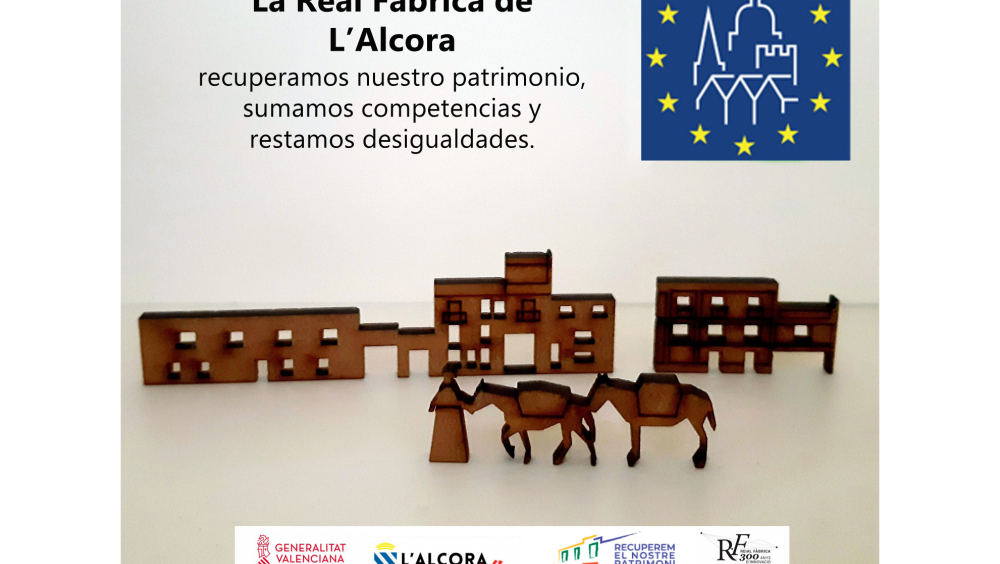La Real Fábrica de L’Alcora. Recovering our heritage, we add competences and we reduce inequalities
As heritage agent, we consider that local administrations (and not so local) often work in a very centralized way for the protection and material rehabilitation of heritage elements, neglecting the realization of a previous or simultaneous process to the architectural project. So, all the agents involved must work together in this management and dissemination Project, also education sector.
It is not an easy task to actively involve the civil collective (Council of Europe, 2005) because this is a group that is not always motivated and often inexperienced. It is necessary to provide tools arising out the interest the enhancement and safeguard of heritage. And to achieve this requires heritage education.
The Real Fábrica del Conde Aranda is a large industrial complex, in which, a few years ago, its long-term comprehensive rehabilitation process began, so a Master Plan has been executed through which different recovery methodologies are developed (architectural, social, cultural, educational and dissemination). Also we highlight the relevant collaborations between administrations and qualified technical groups, with the aim of integrating the material remains of the long industrial tradition of the building with the history and memory of ceramics.
Within this vast recovery program are two powerful educational and social projects, that we present here belongs.
L'Alcora has a considerable educational infrastructure, that is posible for the four schools, Comte d'Aranda, La Salle, Grangel Mascarós and Puértolas Pardo, and the two high schools, Ximén d'Urrea and l'Alcalatén; also they have collaborations with the schools of the neighboring towns: Costur, Figueroles and Lucena del Cid.
All of them, in addition to their activity related to the school program, collaborate and make part of the educational projects related to ceramics, which are promoted by the team of the Museum of Ceramics, the Royal Factory (Real Fábrica de l’Alcora) and l'Alcora City Council.
Covid-19 forced the teaching team to pause some of the scheduled activities and design others that respected the security measures for the control of the pandemic. Even so, they have programmed and carried out, mainly, outdoor activities reducing assitance capacity. In this task, the role of the Museum of Ceramics and its educational campaign has been essential.
The educational priority is SGD (Susstainable Development Goals) number 4 from United Nations: Ensure inclusive and equitable quality education and promote lifelong learning opportunities for all. Therefore, we work the natural environment as a didactic resource par excellence in all courses and groups (from Early Childhood education and Primary education); virtual didactic workshops with families adapted to the pandemic situation; street workshops about historical, cultural and industrial heritage as a didactic resource in the development of key competences; the promotion of sport and healthy eating through the sports project and as a link between the local natural heritage.
Activities have been very successful: the preparation of cultural dioramas (visions of the cultural landscape offered by historical buildings next to the natural heritage), trips to nature looking for native vegetation, heritage routes, workshops for the elaboration of ceramic bowls, know the hydraulic mills and their machinery from our environment as well as their importance in the industrial development of the territory, the route of the mines, the factory of ideas elaborating a ceramic mural and the workshop of historical photography.
This year has been useful for students to better know the cultural and natural, tangible and intangible heritage of l'Alcora. It has been a very positive experience.
Important: Only a little part of the participants are registered in the proposal (10 children). More than 1000 students have participated in the project.
